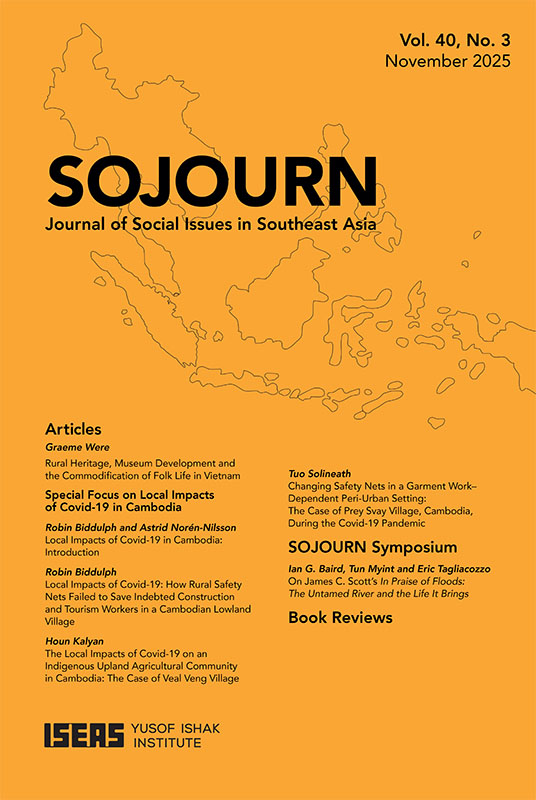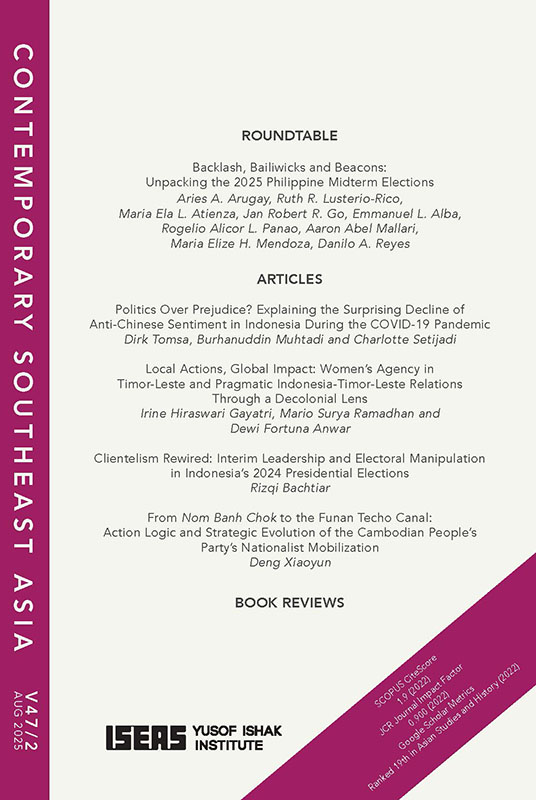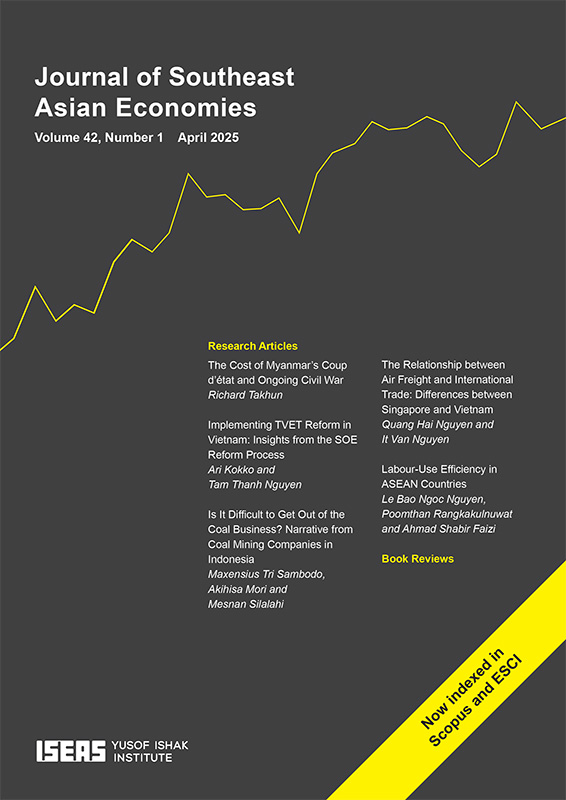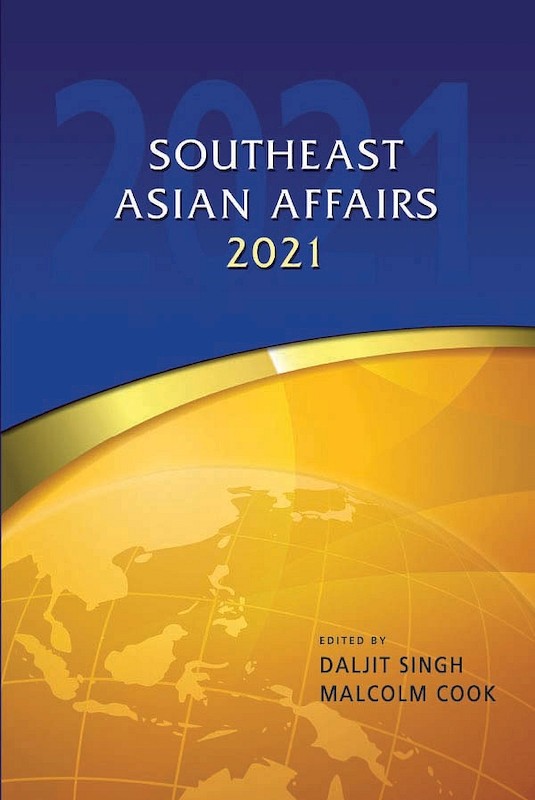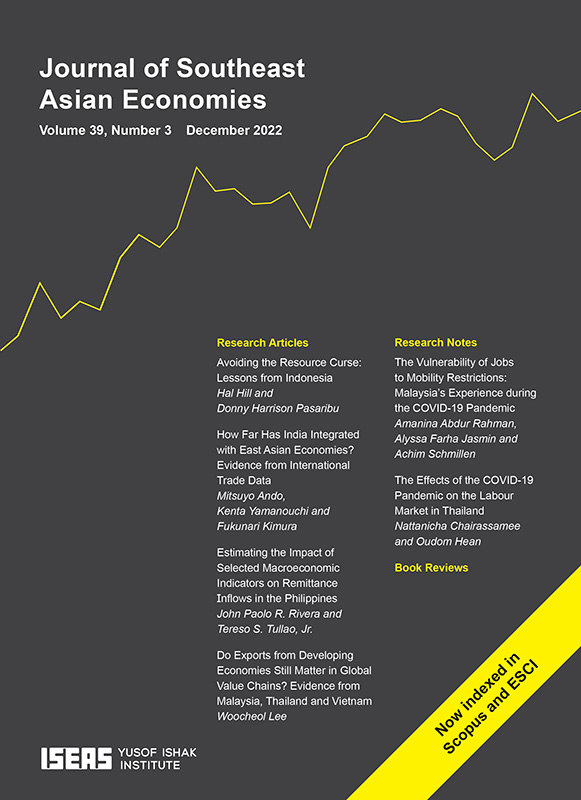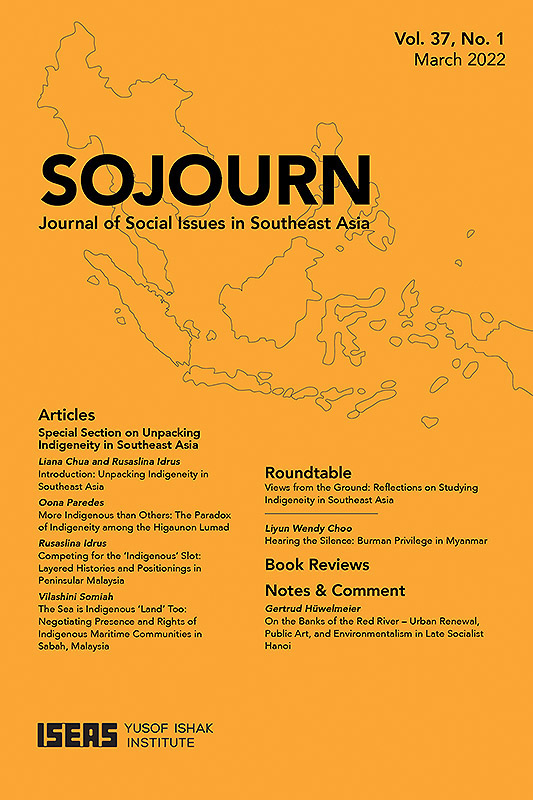SOJOURN: Journal of Social Issues in Southeast Asia Vol. 38/3 (November 2023)
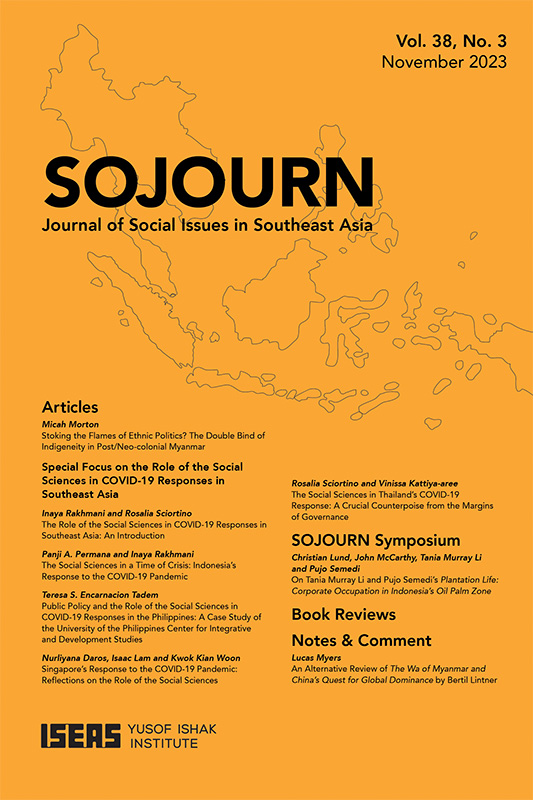
Date of publication:
November 2023
Publisher:
ISEAS – Yusof Ishak Institute
Number of pages:
183
Code:
SJ38/3
Soft Cover
ISSN: 02179520
Contents
-
SOJOURN: Journal of Social Issues in Southeast Asia Vol. 38/3 (November 2023)
[Whole Publication, ISSN: 17932858] -
Preliminary pages
- ARTICLES
-
Stoking the Flames of Ethnic Politics? The Double Bind of Indigeneity in Post/Neo-colonial Myanmar, by Micah Morton, author see abstractIn this article, I discuss the challenges ethnically non-Burman activists in Myanmar encounter in articulating a politics of Indigeneity in the face of Myanmar’s post/neo-colonial policies and discourse of national unity and equality. I highlight the limitations and potentials of efforts to reframe the global concept of Indigeneity in a non-European settler colonial context where the state dismisses that concept by declaring all its citizens “indigenous”. I argue that Indigenous activists in Myanmar are caught in a particular kind of double bind that makes it difficult to make any claim of distinction as “Indigenous Peoples” relative to dominant ethnic Burmans.
- SPECIAL FOCUS ON THE ROLE OF THE SOCIAL SCIENCES IN COVID-19 RESPONSES IN SOUTHEAST ASIA
-
The Role of the Social Sciences in COVID-19 Responses in Southeast Asia: An Introduction, by Inaya Rakhmani, Rosalia Sciortino, authors
-
The Social Sciences in a Time of Crisis: Indonesia’s Response to the COVID-19 Pandemic, by Panji A Permana, Inaya Rakhmani, authors see abstractThis article examines the influence of the social sciences on policymaking during the first wave (2020 to 2021) of the COVID-19 pandemic in Indonesia. It explains two broad orientations of the social sciences: technocratic, which was incorporated into elite-driven institutionalized responses that, at times, did not fully address urgent healthcare needs; and critical, which provided timely digital health information for the wider public. On a practical level, though, the two orientations can be intertwined. The article argues that further understanding of social scientists’ relationship to power is needed in efforts to make the social sciences more beneficial to the people rather than to the elite.
-
Public Policy and the Role of the Social Sciences in COVID-19 Responses in the Philippines: A Case Study of the University of the Philippines Center for Integrative and Development Studies, by Teresa S. Encarnacion Tadem, author see abstractThis article examines the research work of the University of the Philippines Center for Integrative and Development Studies (UP CIDS), the policy research unit of the University of the Philippines System, as it sought to address the challenges to Philippine society arising from the COVID-19 pandemic. The main concern of the various UP CIDS programmes is addressing the needs of marginalized sectors, including strengthening the primary healthcare system; relieving the plight of farmers, fisher folk and micro, small and medium-sized enterprises; and providing solutions to the demands of the education sector during the pandemic. The article shows that the social sciences played an important role in highlighting aspects of the pandemic that affect various sectors of society and, to some extent, in feeding into the policymaking process.
-
Singapore’s Response to the COVID-19 Pandemic: Reflections on the Role of the Social Sciences, by Nurliyana Daros, Isaac Lam, Kwok Kian Woon, authors see abstractThe role of social science in Singapore’s “whole-of-government” management of COVID-19 was largely limited to evaluating public perceptions of government policy and understanding the sociobehavioural factors that could help better manage the pandemic. The problems faced by marginalized groups were largely overlooked, although NGOs using arguments based on social science and academics writing on public platforms sought to draw attention to some of those issues. This article identifies the barriers to a more robust application of social science in tackling systemic blind spots in Singapore and offers reflections from a “post-normal science” perspective for interdisciplinary collaborative efforts that may complement state capacity in post-COVID-19 transformation and future crises.
-
The Social Sciences in Thailand’s COVID-19 Response: A Crucial Counterpoise from the Margins of Governance, by Rosalia Sciortino, Vinissa Kattiya-aree, authors see abstractThis article, based on literature review and interviews with key informants in 2021–22, reflects on the degree to which social science and social science specialists were involved in the Thai government’s handling of the multidimensional effects of the COVID-19 pandemic. The article juxtaposes the marginal role of social scientists in official structures with their multiple engagements outside of such structures. The findings show that pandemic-specific social research agenda of social scientists were generally technocratic in nature, being geared to the perceived needs of policymakers, even if formal mechanisms to feed inputs into the policymaking process were restricted. Using public debates and the media, a smaller group of social scientists were able to make an impact by highlighting neglected aspects of the pandemic, advocating for the rights of the underserved and challenging policy decisions.
- SOJOURN SYMPOSIUM
-
SOJOURN Symposium: On Plantation Life: Corporate Occupation in Indonesia’s Oil Palm Zone by Tania Murray Li and Pujo Semedi, by Christian Lund, John McCarthy, Tania Murray Li, Pujo Semedi, authors
- BOOK REVIEWS
-
BOOK REVIEW: Subversive Archaism: Troubling Traditionalists and the Politics of National Heritage by Michael Herzfeld, by Maurizio Peleggi, author
-
BOOK REVIEW: Nine-Tenths of the Law: Enduring Dispossession in Indonesia by Christian Lund, by Edward Aspinall, author
-
BOOK REVIEW: Religious Pluralism in Indonesia: Threats and Opportunities for Democracy by Chiara Formichi, by Daniel Peterson, author
-
BOOK REVIEW: The Divine Bureaucracy and Disenchantment of Social Life: A Study of Bureaucratic Islam in Malaysia by Maznah Mohamad, by Ahmad Fauzi Abdul Hamid, author
-
BOOK REVIEW: Projectland: Life In a Lao Socialist Model Village by Holly High, by Kanokwan Manorom, author
-
BOOK REVIEW: Albert Winsemius: De man die Nederland en Singapore rijk maakte [Albert Winsemius: The man who made the Netherlands and Singapore rich] by Frans Stoelinga, by Sense Egbert Hofstede, author
-
BOOK REVIEW: Writing the Modern: Selected Texts on Art & Art History in Singapore, Malaysia & Southeast Asia 1973–2015 by T.K. Sabapathy, by Simon Soon, author
-
BOOK REVIEW: Music and Recording in King Chulalongkorn’s Bangkok by James L. Mitchell, by Deborah Wong, author
- NOTES & COMMENT
-
An Alternative Review of The Wa of Myanmar and China’s Quest for Global Dominance, by Bertil Lintner, by Lucas Myers, author

